South Surrey / White Rock Learning Centre
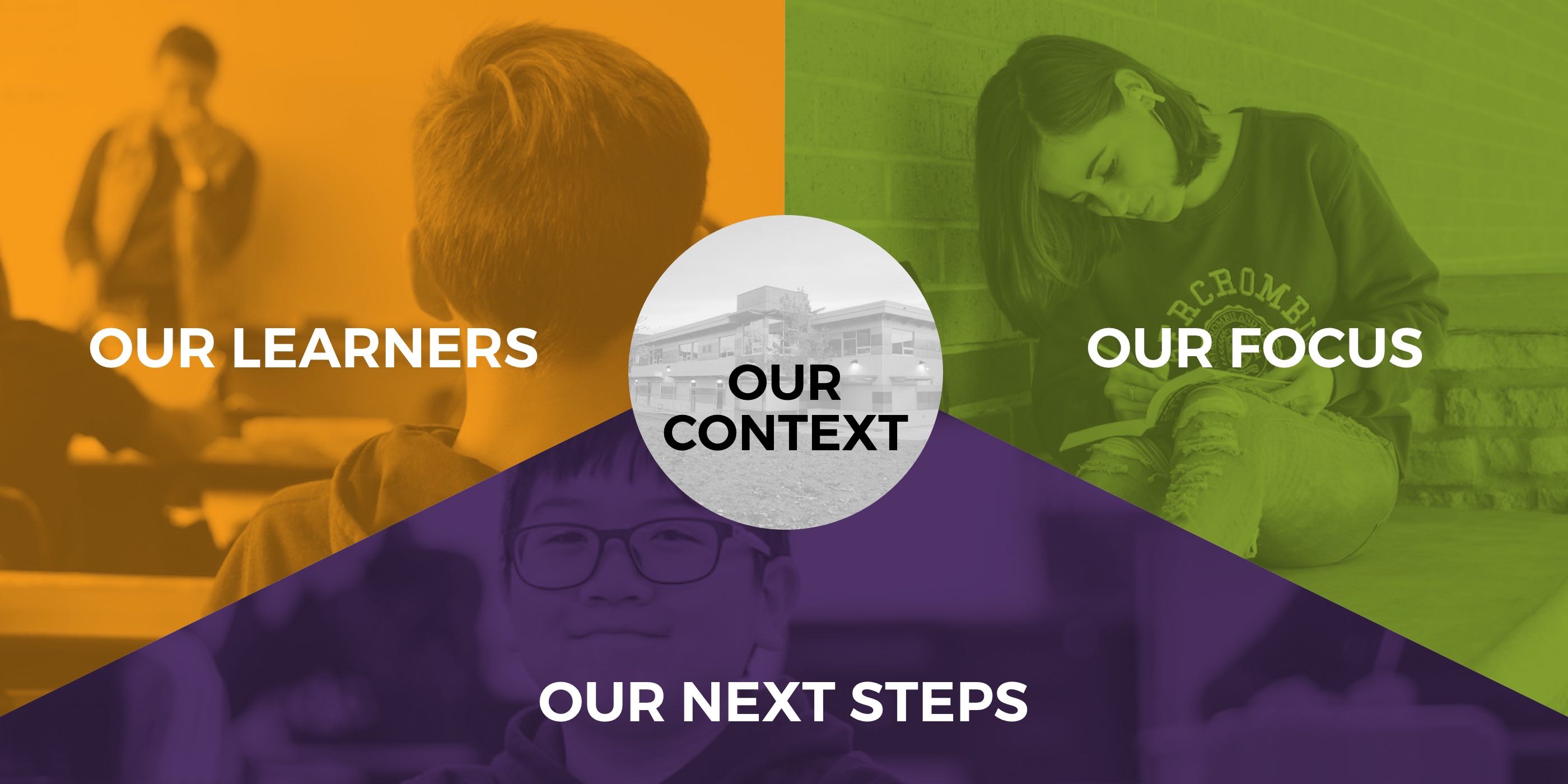

OUR CONTEXT
Building resiliency through self-regulation, hope and belonging

South Surrey White Rock Learning Centre is a small, welcoming secondary school providing engaging, alternative educational opportunities for students in grades 10, 11 and 12.
Our students are a diverse group with a wide range of abilities, gifts and talents. They are artistic, musical, creative and divergent thinkers. One commonality among our students is that most have found traditional mainstream settings do not work for their learning style. They appreciate the more flexible and individualized programming we can offer. Our purpose is to nurture the inherent abilities of our students, and thereby change the narrative of their stories, from one of non-success to success.
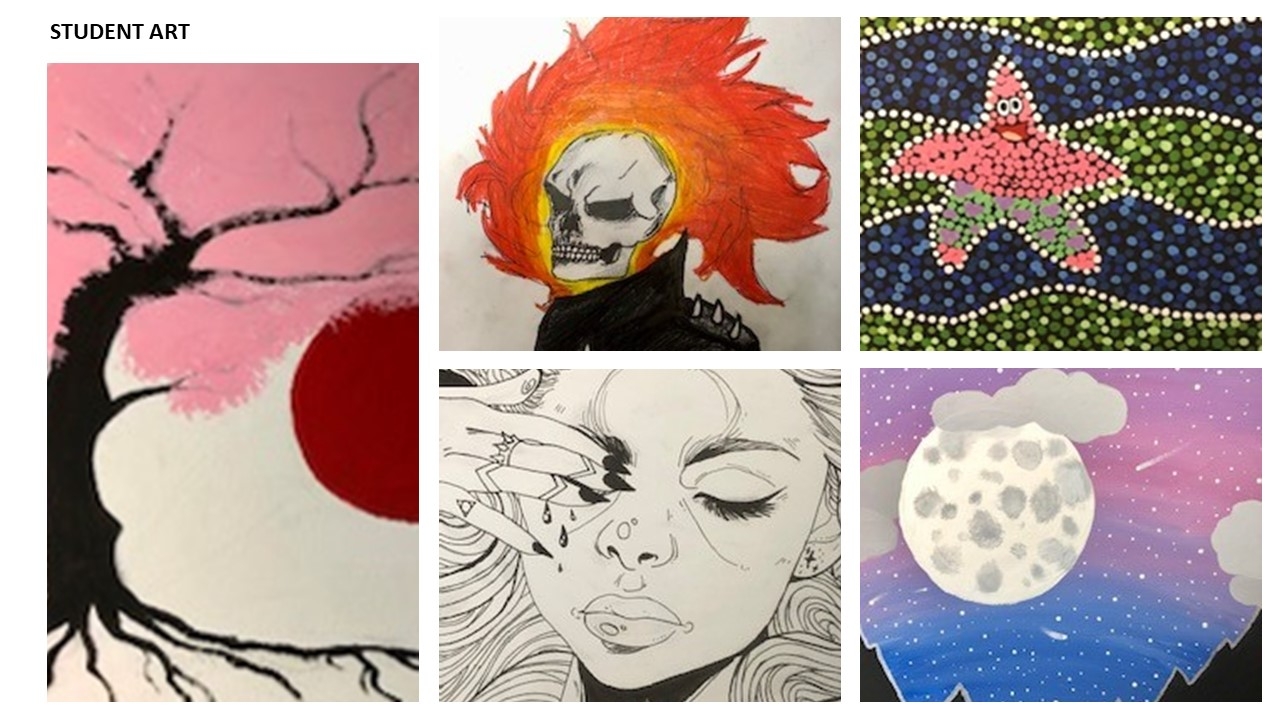
Education is a “contact” sport; the young brain is designed to develop, grow and “flourish in a social context” (C. Elders, Clinical Psychologist), and establishing positive relationships is a foundational feature of our learning centre. Capture the heart, and it is easier to engage the hands and the brain. Our students need the support of our staff and their peers to help them discover their passions, their voices and build on their strengths. With support focused on the diverse learning, emotional and social needs of each student, pathways are created to achieve their educational goals.
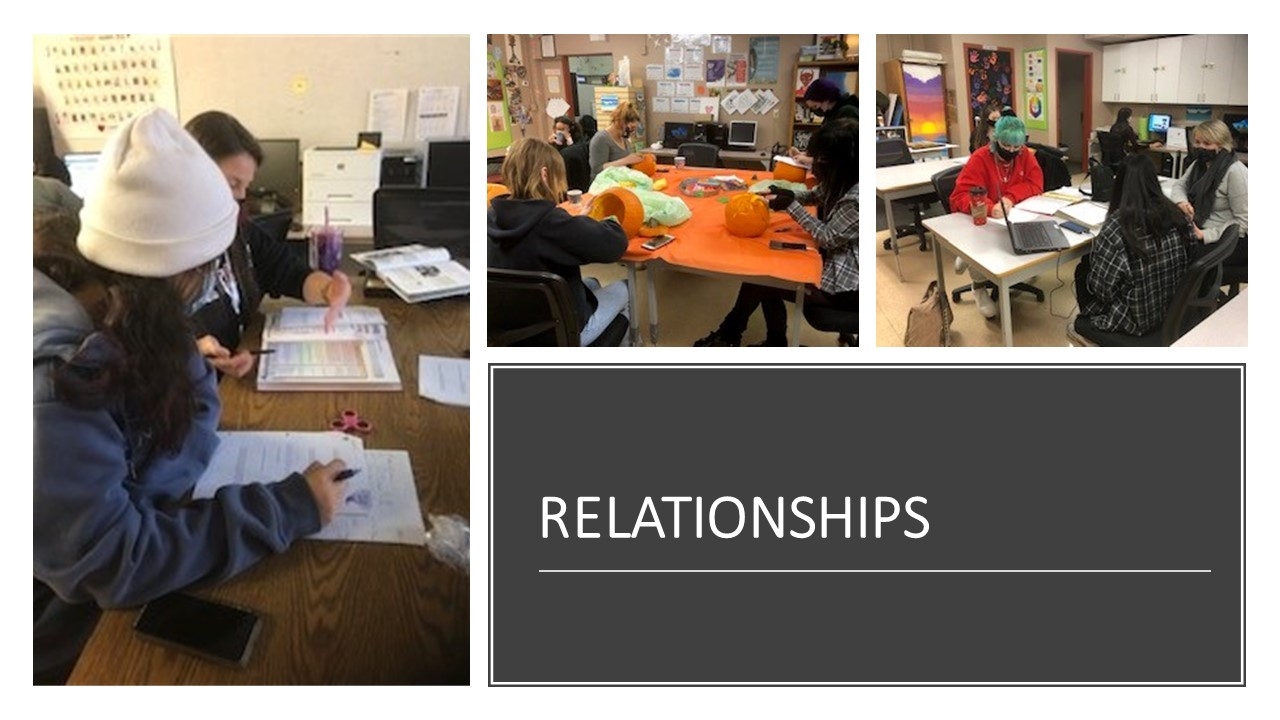
By building resiliency through self-regulation, hope and belonging we work to awaken the Raven Spirit within all of our students.
As with the raven in the story, our students journeys often proceed in fits and starts. But, as with the raven, each phase of that journey is marked by new personal growth or the development of some new insight or inner strength. Like the raven, they may tire along the way, but they do not give up; they stay with us until all the work of growing up is done.
To quote one of our graduates...
"When you think of entering high school you wonder what direction you will go in and where your future is going to take you. Before I found the White Rock Learning Centre, I struggled a lot in school and maintaining stability in my life. At one point, I did not know if graduation was going to be possible for me, until I finally found myself starting at the learning centre in the fall of 2018. For the first time, I found somewhere I was comfortable and able to express myself in the way I wanted.
The support from teachers and people close to me has helped me completely turn my life around. My grades have significantly improved since I started here when I was 15 years old, and I am thankful I made the decision to prioritize my schooling. Making better decisions for myself and graduating high school is the ticket to the rest of your life and finding your path. I have learnt it is okay not to know what you may want for yourself or have a plan right away because its unfair to expect someone at such a young age to know everything.
I have made so many amazing memories at this school that I will never forget. There have been hardships, but that is okay too. I will never let that change my view. I have no regrets. I am so proud of everyone for pushing through and making it to the end because success is not always easy, and I wish everyone the best. I thank all the staff for everything they have done for me because I couldn’t have gotten there without them and the endless support they’ve given me. This school has changed me for the better and I am looking forward to seeing where my journey takes me. Congratulations class of 2022!"
OUR LEARNERS
Students who are personally aware and responsible, recognize how their decisions and actions affect their mental, physical, emotional, social, and cognitive wellness and take increasing responsibility for caring for themselves (Albert Bandura, Psychologist). Students who have strong self-efficacy participate more in class, work harder, persist longer and have fewer adverse emotional reactions when encountering difficulties. They are able to manage stress and express a sense of well-being.
Self Awareness and Self Management
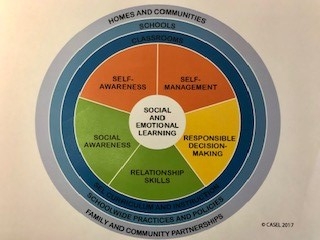
We want our learners to understand that their decisions and choices affect themselves and others around them. By developing their competencies in the areas of self awareness and self management, they will be able to approach their goals, tasks and challenges with a positive mindset, and this in turn will lead to a greater engagement in their learning and personal development. This will be demonstrated through exploring and describing factors that shape personal identities, including social and cultural factors.
Our learners can make connections between emotions and learning. They can identify their own emotions, as well as those of others.
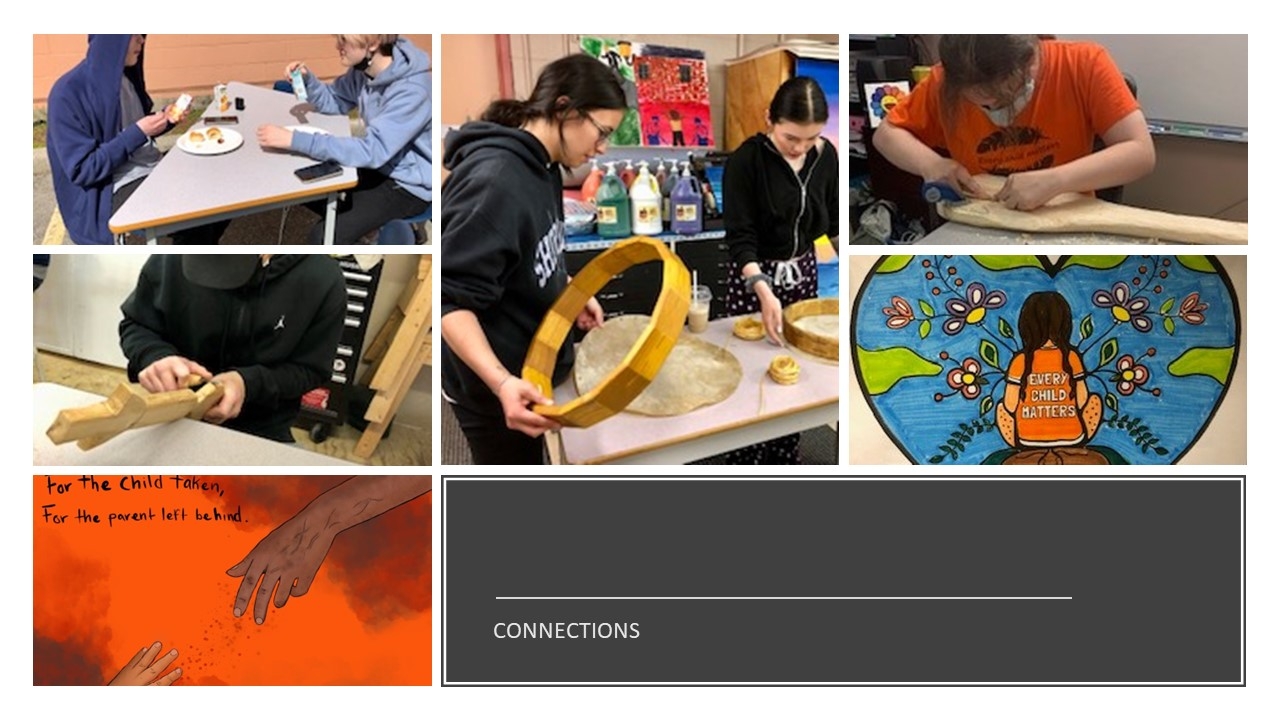
Our learners can recognize their strengths and can use strategies to focus and accomplish their goals.
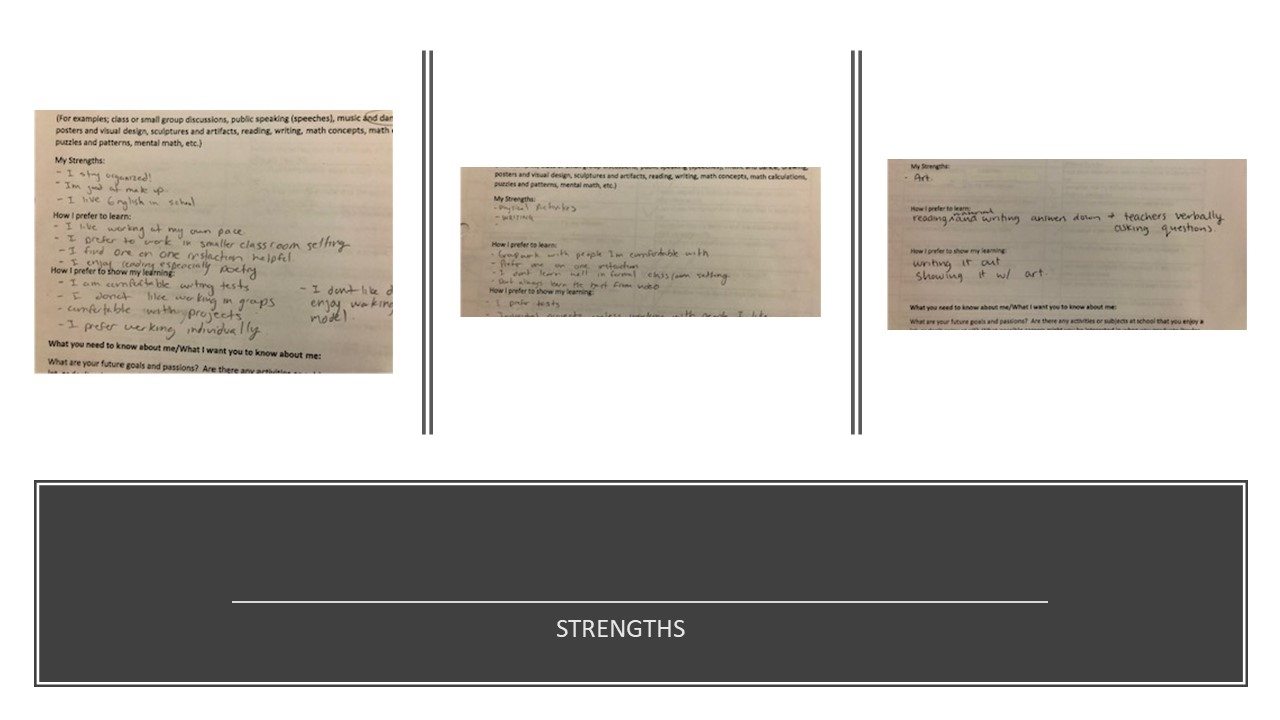
Our learners believe in their capabilities to achieve academic, career and/or personal goals.
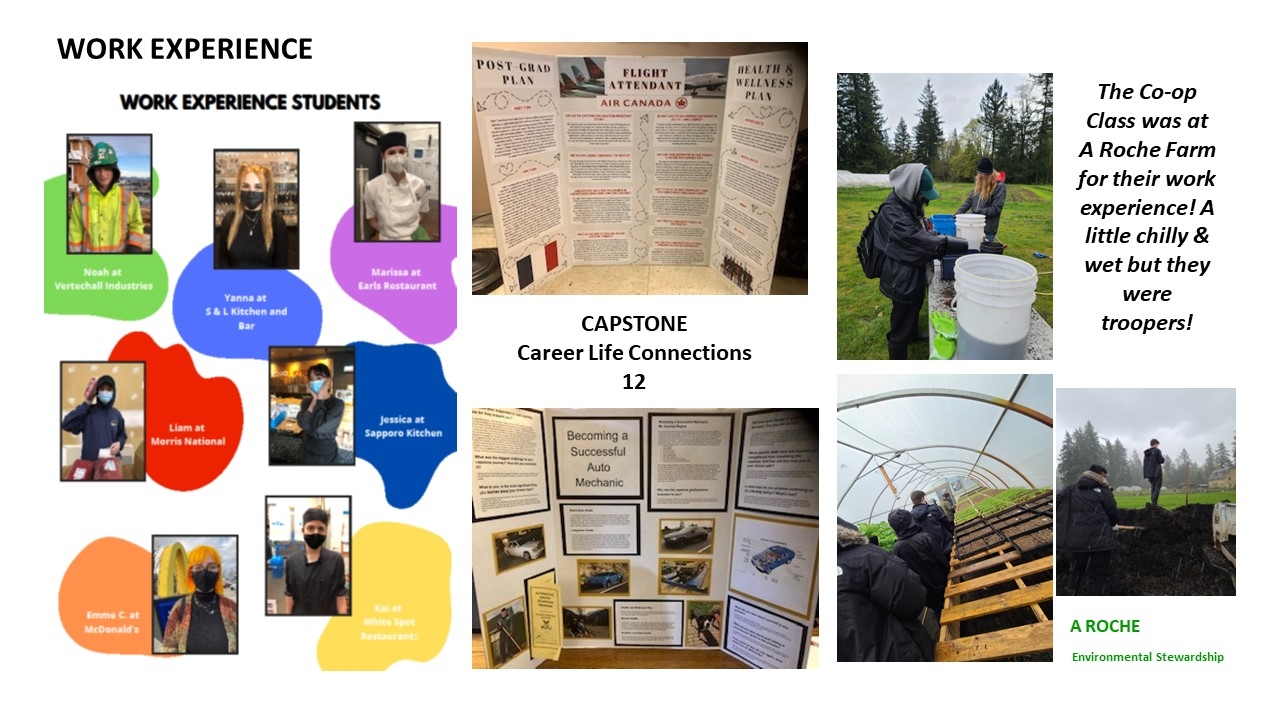
OUR FOCUS
COVID has had an adverse affect on the educational journey, and the well-being of many youth. With the intake of numerous Grade 10 students across the learning centres, it has become evident that the pandemic has interrupted not only the intellectual development of these youth, but perhaps more importantly, their social emotional development. “Carla Elfers, a Vancouver clinical youth psychologist, said generation Z is struggling just as much from how the pandemic has reduced social contact, volunteer activities and extracurricular events as it has from the disarray in their formal academic studies.” (‘In the Dark’ – Douglas Todd Vancouver Sun, Jan 29, 2022). The last “normal year” for the students in Grade 10, was pre-COVID and data shows that many are deficient in the grade 8 and 9 core courses. According to Elfers, for students who were in grade 8 when COVID hit in March 2020 things “might be the toughest”. COVID interrupted a very critical development period in the lives of these students. “That three-grade period is crucial for developing close friendships, a sense of purpose and resilience, which Elfers said is important to have in place before the big push to figure out your path in higher education and work”. For vulnerable youth especially, who are often already behind their peers, due to disengagement and absenteeism, COVID has amplified all of this. This gap in the social emotional development of our Grade 10 Youth has highlighted the need to a focus on SEL, particularly the curricular competency, exploring and describing factors that shape personal identities, including social and cultural factors.
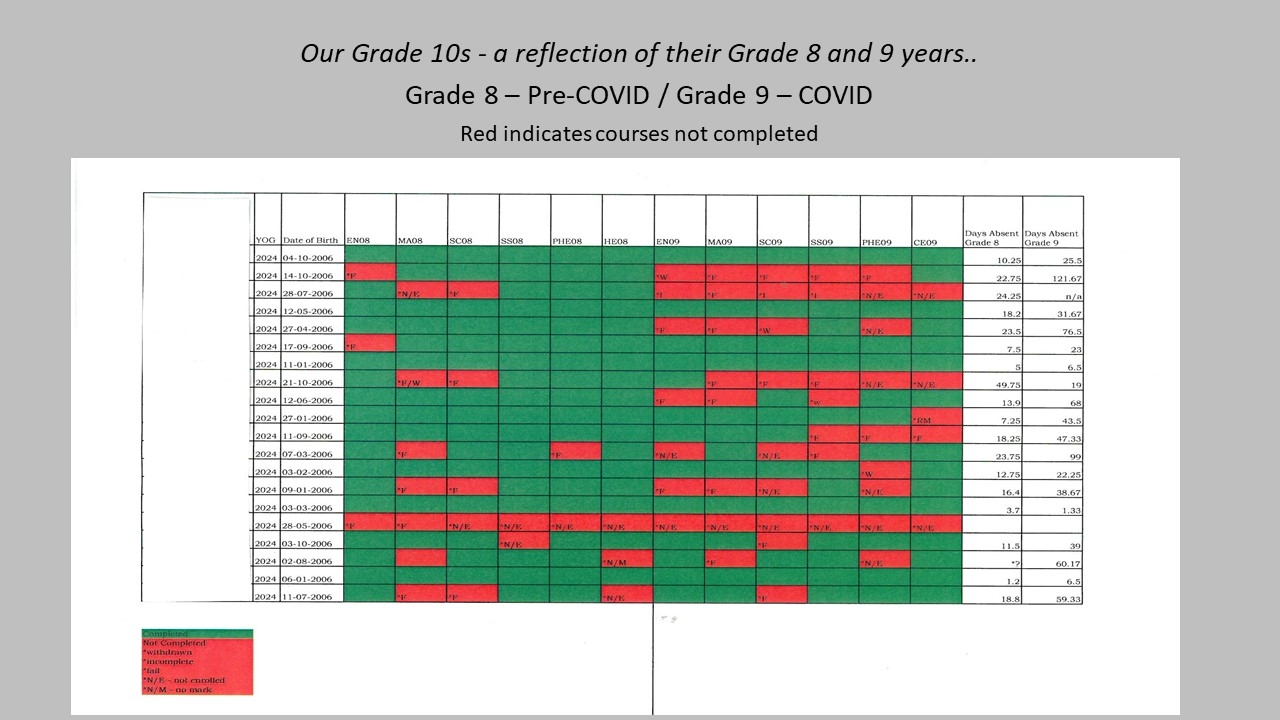
- Our learners can make connections between emotions and learning. They can identify their own emotions, as well as those of others.
- Our learners can recognize their strengths and can use strategies to focus and accomplish their goals.
- Our learners believe in their capabilities to achieve academic, career and/or personal goals.
OUR NEXT STEPS
Our students are developing their self awareness and self management skills and capacities by exploring and describing factors that shape personal identities, including social and cultural factors. They have demonstrated their ability to:
Make connections between emotions and learning
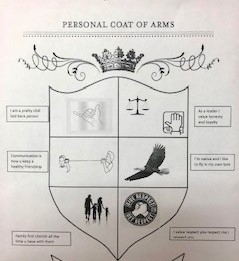 Our students created a Personal Coat of Arms to encourage exploration of their personal identities. In CLE 10, students were able to identify social and culture factors that are important to them and help them with the questions "Who are you?" and "What do you value?"
Our students created a Personal Coat of Arms to encourage exploration of their personal identities. In CLE 10, students were able to identify social and culture factors that are important to them and help them with the questions "Who are you?" and "What do you value?"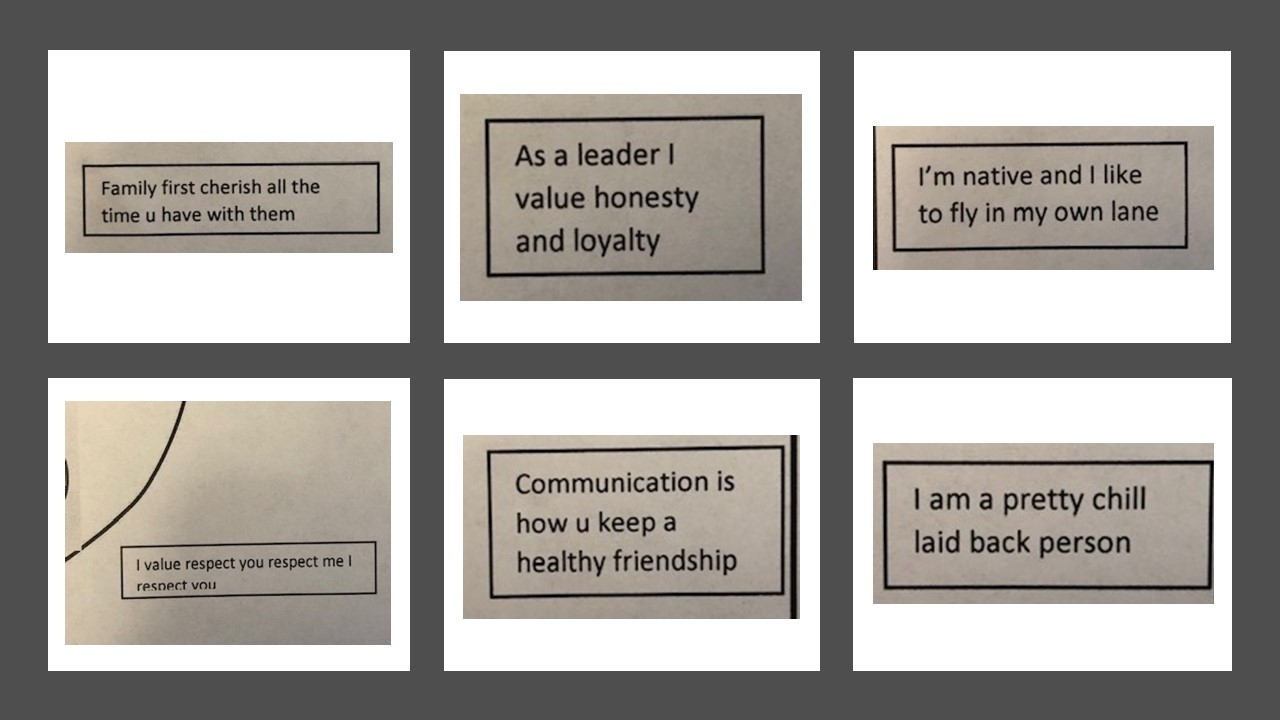
Recognize their strengths and use strategies to focus and accomplish their goals.
Student Support Plans are a part of our school culture. These plans initiate our focus on student self awareness and self management. Students, alongside staff, build and use these plans to help guide the student's academic and personal learning journey.
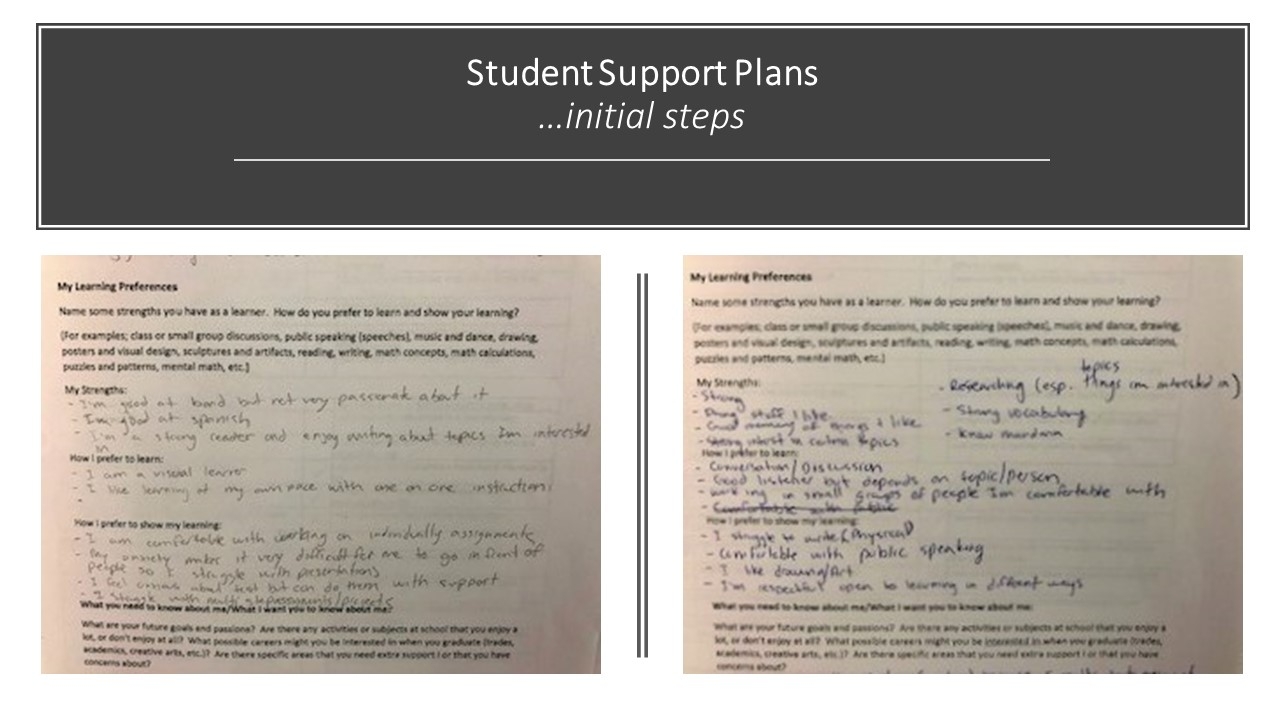
Believe in their capabilities to achieve academic, career and/or personal goals.
In the spring, our students spent a total of 80 hours at work experience at A Roche Environmental Stewardship and Camp Alexandra. Work experience provides an opportunity for students to build self awareness and self management skills. Work experience fosters self-regulation, hope and belonging.
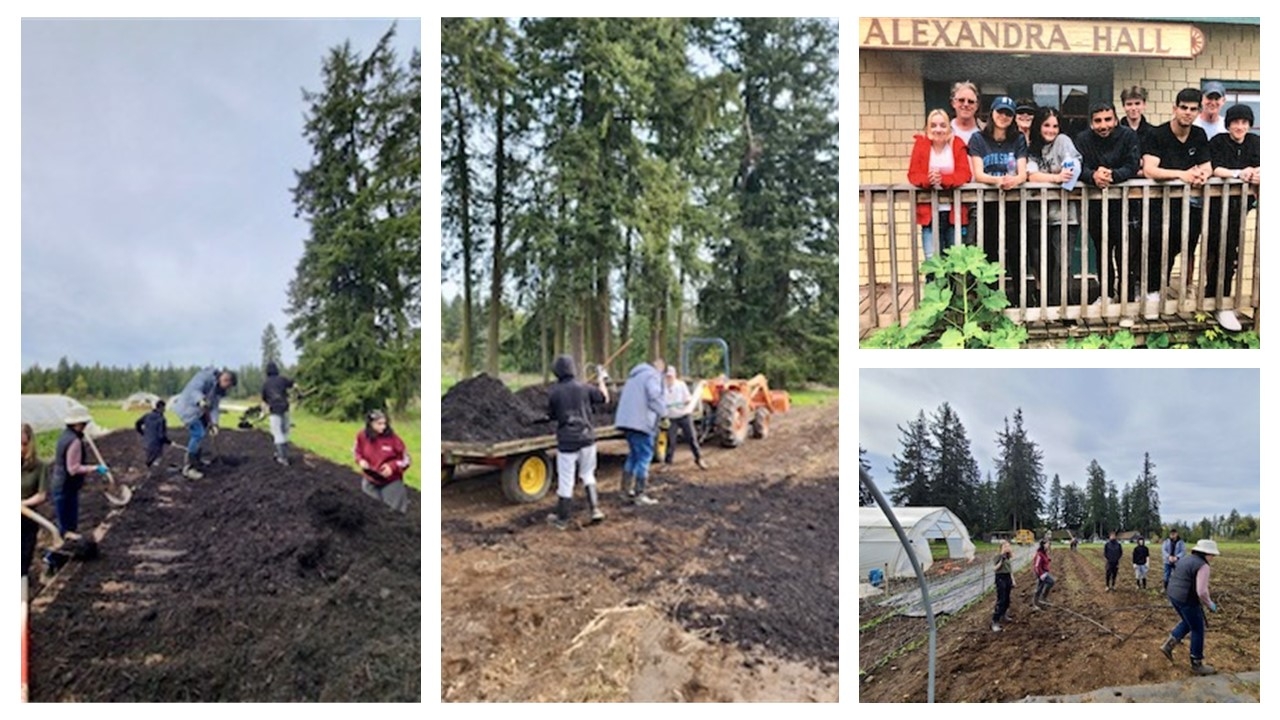
Moving Forward
We see that developing our learners skillsets in self awareness and self management is valuable. We are noticing our students progressing in their understanding of themselves and how this connects to their interactions with others (self-regulation), our school (belonging), and their future (hope).
We will continue to build on this work in the following ways:
- Continue to focus on SEL, particularly the curricular competency, exploring and describing factors that shape personal identities, including social and cultural factors. Students will continue to make connections to who they are in relation to self and others.
- Go deeper into the social and cultural aspects of personal identity.
- Explore universal, targeted and intensive SEL supports and assessments - universal self-regulation strategies, targeted small group work such as Mindfulness, and intensive one-to-one support as needed.
- Explore additional learning goals. Possibilities include: Demonstrate respect for self, others, and place, Develop skills for maintaining healthy relationships and responding to interpersonal conflict, Practice effective strategies for healthy school/work/life balance
- Further link the curricular areas of CLE 10 Unit 1 Who are you? and English 10 Unit 1 Who am I? to our learning goal(s).
- Explore resources.
- Continue to celebrate our students and their personal learning journeys!
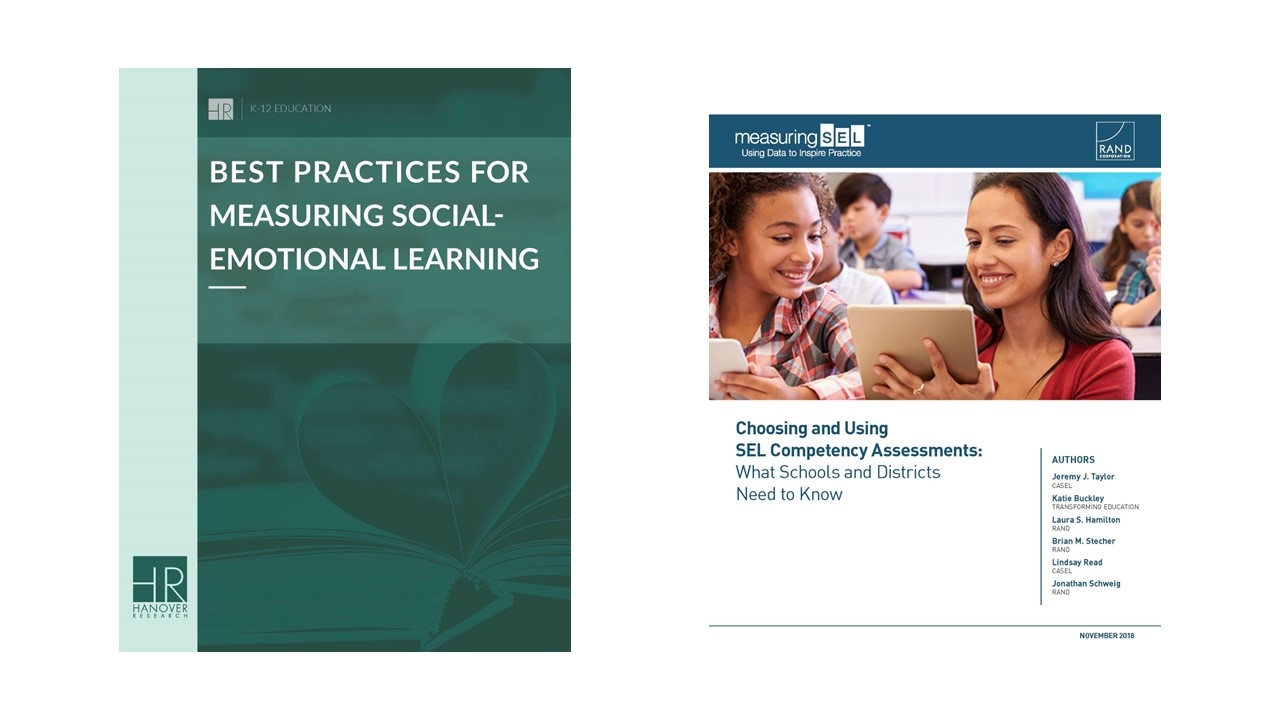
Building resiliency through self-regulation, hope and belonging

